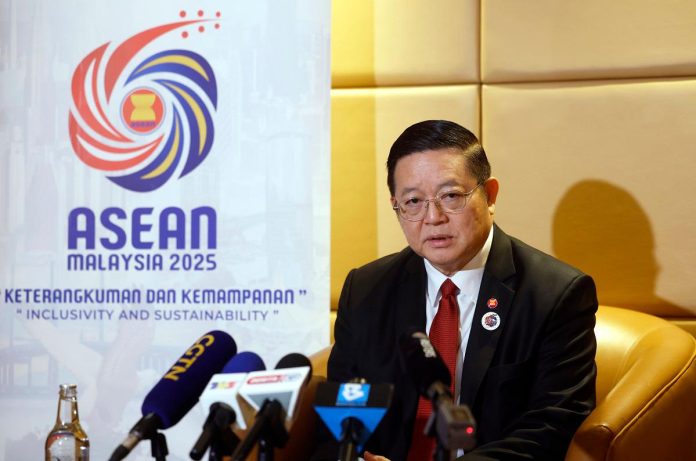KUALA LUMPUR: ASEAN Secretary-General Dr Kao Kim Hourn has reaffirmed that the regional bloc remains united and committed to its centrality and solidarity, even amid growing external pressures and persistent challenges such as the South China Sea dispute and the Myanmar crisis.
Speaking to the media ahead of the 46th ASEAN Summit at the Kuala Lumpur Convention Centre (KLCC) here, Kao said the commitment was demonstrated when ASEAN Foreign Ministers, who met in four separate meetings yesterday, collectively reiterated that ASEAN’s strength lies in its unity and centrality role in the region.
“The message is very clear. ASEAN Foreign Ministers have not just emphasised unity, but also reaffirmed how ASEAN will continue working together during this very challenging time,” he said.
Kao, who is leading the ASEAN Secretariat delegation to the 46th Summit, as well as the 2nd ASEAN-Gulf Cooperation Council (GCC) Summit and the inaugural ASEAN-GCC-China Summit, said the bloc has consistently maintained a united voice on regional and global issues when engaging both internally and with external partners.
Commenting on Malaysia’s announcement to send a delegation to Myanmar to resume engagement with stakeholders there, Kao said this reflects the active role of the ASEAN Chair and the Special Envoy on Myanmar.
“We’ve seen that under Malaysia’s chairmanship this year, the country has been very proactive and consistent in leading ASEAN, especially in efforts to engage Myanmar,” he said.
He cited Malaysia’s swift response to Myanmar’s recent 7.7-magnitude earthquake as a key example of this leadership. In coordination with Thailand, Malaysia initiated a special ASEAN Foreign Ministers’ meeting to discuss the delivery of assistance.
“The meeting was convened promptly to coordinate a common ASEAN response. Following that, we’ve seen the delivery of humanitarian assistance to Myanmar both collectively and individually by member states,” he said.
Kao noted that ASEAN continues to play a key role in mobilising regional and external support, channelling it through ASEAN-coordinated platforms.
On the implementation of the Five-Point Consensus (5PC), Kao said ASEAN remains firm in its position.
“We want to see a long-term ceasefire, non-violence, inclusive political dialogue, and an escalation in humanitarian assistance to help the people of Myanmar affected by both the political crisis and the recent natural disaster,” he said.
Responding to a question on whether ASEAN would press Myanmar’s military junta to hold direct talks with the National Unity Government and other stakeholders, Kao reiterated the bloc’s position by saying:
“We want to see an inclusive political dialogue that involves all key stakeholders. What I’ve observed is that Malaysia has been quite forthcoming in exercising leadership, with the support of ASEAN member states,” he said.
Despite growing concerns over external influence and internal discord, Kao stressed that ASEAN’s consistency, cohesion and commitment to regional peace and stability remain unwavering.








